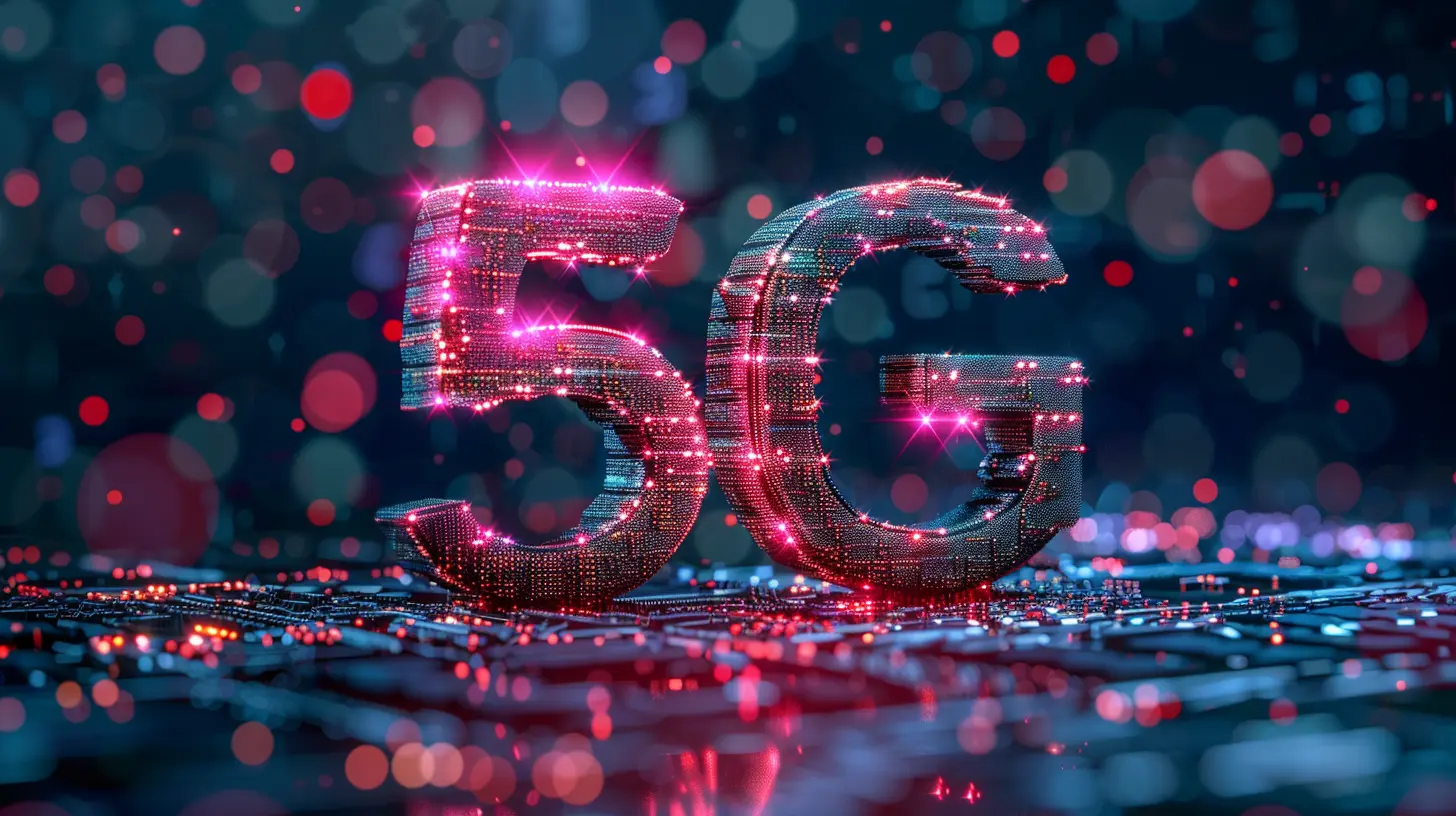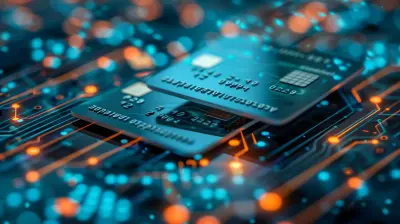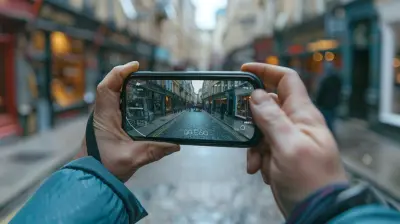G and the Future of Personalized Medicine
14 November 2025
Imagine a world where your doctor can tailor treatments to your exact genetic makeup, lifestyle, and real-time health data. Sounds like science fiction, right? Well, thanks to the rise of 5G technology, this idea of personalized medicine is becoming a reality faster than you might think.
In this article, we're diving deep into how 5G—the next-generation network—will revolutionize healthcare, especially when it comes to personalized medicine. From faster data transmission to more precise treatments, buckle up as we explore how 5G is shaping the future of healthcare.

What is 5G, and Why is it a Game-Changer?
Before we jump into the healthcare implications, let’s quickly cover the basics.5G is the fifth generation of mobile networks, and it’s a massive leap from the 4G LTE networks we’ve been using for years. When people talk about 5G, they usually mention faster speeds, but it's about more than just that. We're talking about lower latency (the time it takes for data to travel from one point to another), higher capacity (more devices being connected at once), and enhanced reliability.
So, what does this have to do with personalized medicine? Everything.
The Promise of 5G in Healthcare
Healthcare professionals are always seeking ways to improve patient outcomes, and 5G offers some game-changing solutions. From real-time data sharing between doctors and patients to remote surgeries, 5G allows for faster, more efficient, and more precise healthcare delivery.But when we narrow it down to personalized medicine—the idea that treatments can be customized to fit each individual’s unique characteristics—5G truly shines.

How 5G is Driving Personalized Medicine
1. Real-Time Patient Monitoring Through Wearables
Think of all the gadgets you’ve seen or maybe even own: smartwatches, fitness trackers, blood pressure monitors, glucose sensors. These wearable devices are already helping people monitor their health in real-time. However, current networks (like 4G) often struggle with the volume of data these devices generate, especially when it needs to be transmitted instantly.Enter 5G.
With its high-speed capabilities and low latency, 5G can collect and transmit real-time data from wearables to healthcare providers without a hitch. This enables doctors to track patients’ vitals, predict medical issues before they become severe, and even adjust treatments on the fly.
Imagine your smartwatch notifying your doctor about a heart irregularity before you even notice it yourself, allowing them to intervene immediately. This kind of real-time monitoring will be crucial in managing chronic diseases like diabetes, heart disease, and even cancer, where keeping track of a patient's condition 24/7 is vital.
2. Genomic Data Processing at Lightning Speed
One of the most exciting developments in personalized medicine is genomics—the study of an individual’s genes and how they interact with their environment. Genomics allows doctors to understand the root cause of diseases and predict how patients will respond to different treatments.But here's the thing: genomic data is absolutely massive. Analyzing just one person’s genome can take days, if not weeks, with current computational power. 5G could change that.
By enabling faster data transfer and real-time processing, 5G will allow healthcare providers to deliver personalized treatments based on a patient's genetic makeup almost immediately. This could lead to faster diagnoses, more effective treatments, and even the potential to prevent diseases before they manifest.
For instance, a patient with a specific genetic mutation could receive a custom-tailored drug that is designed to target that mutation, something that would have been impossible to deliver quickly with current networks.
3. Telemedicine and Remote Surgeries
Telemedicine has already seen a boom, especially during the COVID-19 pandemic. But one of the limitations has always been the quality of the connection. Laggy video calls and slow data transmission can be frustrating for both patients and doctors, especially when dealing with critical health information.With 5G, telemedicine can reach its full potential. The ultra-fast speeds and low latency will allow doctors to consult with patients in real-time—without any frustrating delays. Moreover, it could enable doctors to perform remote surgeries with the help of robotic systems.
Imagine a surgeon in New York operating on a patient in a rural area of India, with zero lag in the robot's movements. That’s the kind of future 5G is enabling. And it’s not just science fiction anymore—this is already happening in some cases, though 5G will make it far more widespread.
4. AI and Machine Learning in Medicine
Artificial Intelligence (AI) and Machine Learning (ML) are already being used in healthcare to analyze vast amounts of data, from medical images to patient records. These technologies can help doctors make faster, more accurate diagnoses, predict patient outcomes, and even recommend customized treatment plans.However, AI and ML require enormous amounts of data to work effectively, and this is where 5G steps in. The speed and capacity of 5G networks will allow AI systems to process and analyze data in real-time, enabling doctors to make split-second decisions based on the latest information available.
For example, an AI system could analyze a patient's real-time health data (like heart rate, blood pressure, and even genetic information) and suggest personalized treatment options that are tailored to that individual’s specific needs. This could be a game-changer in managing chronic diseases, where individualized treatment plans are often the most effective.
5. Advanced Robotics and Precision Medicine
Robotic systems are already being used in surgeries and other medical procedures, but with 5G, these systems will become even more precise and reliable. The low latency and high-speed data transmission of 5G will allow for real-time control of robotic systems, enabling doctors to perform highly complex surgeries with pinpoint accuracy.In the context of personalized medicine, these robotic systems could be used to deliver targeted treatments—like delivering chemotherapy directly to cancer cells, without affecting the surrounding healthy tissue. This kind of precision medicine could reduce side effects and improve patient outcomes.

Challenges and Concerns
Of course, no technology is without its challenges, and 5G is no exception. While the benefits of 5G in healthcare are clear, there are still some hurdles to overcome.Data Privacy and Security
With all this real-time data being transmitted over 5G networks, there are significant concerns about privacy and security. Healthcare data is some of the most sensitive information out there, and ensuring that it stays secure is a top priority.5G networks will need to incorporate robust security measures to protect patient data from hackers and other malicious actors. This will likely involve a combination of encryption, blockchain technology, and other advanced security protocols.
Infrastructure
Another challenge is the infrastructure that will be needed to support 5G networks. While major cities are already rolling out 5G, rural areas may take longer to catch up. This could lead to disparities in access to personalized medicine, with some patients benefiting from 5G-enabled healthcare while others are left behind.Cost
Developing and implementing 5G technology in healthcare will not be cheap. From upgrading hospital infrastructure to training healthcare professionals on the new technology, the costs could be significant. However, many experts believe that the long-term benefits—faster diagnoses, better patient outcomes, and reduced healthcare costs—will outweigh the initial investment.
The Road Ahead: What To Expect
The future of personalized medicine with 5G is incredibly exciting, but we're still in the early stages of this technological revolution. Over the next few years, we can expect to see more hospitals, clinics, and healthcare providers adopting 5G technology to enhance patient care.Wearables will become even more advanced, capable of monitoring a wider range of health metrics in real-time. AI and machine learning will become more integrated into healthcare systems, allowing for even more precise and personalized treatments. And, as 5G networks become more widespread, we can expect to see telemedicine and remote surgeries become the norm rather than the exception.
It’s not a question of if 5G will revolutionize healthcare, but when. And when it does, the world of personalized medicine will never be the same.
Conclusion
5G is more than just faster internet on your smartphone—it's a fundamental shift in how we approach healthcare. From real-time patient monitoring to AI-driven decision-making, it’s clear that 5G will be a key driver in the future of personalized medicine. While there are challenges to overcome, the potential benefits for both patients and healthcare providers are enormous.So, the next time you hear about 5G, don’t just think about faster downloads or better streaming quality—think about the incredible advancements in healthcare that are just around the corner. We’re on the verge of a healthcare revolution, and 5G is leading the charge.
all images in this post were generated using AI tools
Category:
5g TechnologyAuthor:

Reese McQuillan
Discussion
rate this article
1 comments
Willow Gibson
Exciting potential: G revolutionizes personalized healthcare!
November 17, 2025 at 4:24 AM

Reese McQuillan
Thank you! We're thrilled about the possibilities G brings to personalized healthcare and how it can transform patient outcomes.


